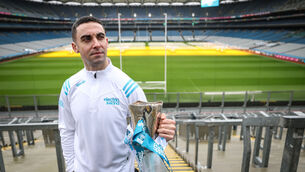'It's not political. It's about racism. I was so angry' - Antrim ladies footballer Dahunsi calls on GAA for support

Still just 18, Lara Dahunsi was named at midfield in the LGFA’s team of the league for Division 4 last year. At 16, she was Ulster’s young player of the year.
What did she hear from opponents after those accolades? That it was tokenism.










